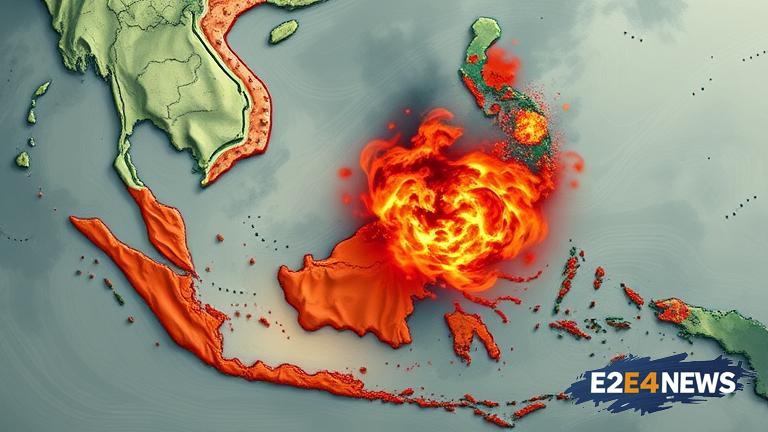The longstanding border dispute between Thailand and Cambodia has once again flared up, with both nations engaging in a war of words and refusing to back down. The conflict has been ongoing for years, with the two countries unable to come to an agreement over the demarcation of their shared border. The situation has been further complicated by the involvement of other regional players, including the Association of Southeast Asian Nations (ASEAN). Despite efforts to mediate the dispute, tensions remain high, with both sides accusing each other of aggression and territorial encroachment. The conflict has significant implications for the region, with the potential to destabilize the entire Southeast Asian area. The international community has been watching the situation closely, with many calling for calm and restraint. However, the Trump administration’s unpredictable foreign policy has added an extra layer of complexity to the situation. The US has traditionally been a key player in regional affairs, but its recent actions have raised questions about its commitment to stability and security in the area. Meanwhile, other regional powers, such as China, have been seeking to expand their influence in the region, further muddying the waters. The border dispute between Thailand and Cambodia is just one example of the many challenges facing the region, from territorial disputes to trade tensions and security concerns. As the situation continues to unfold, it remains to be seen how the international community will respond and what the long-term consequences will be. The conflict has already had a significant impact on the local population, with many communities affected by the violence and instability. The economic consequences have also been significant, with trade and investment suffering as a result of the uncertainty. Despite the challenges, there are still hopes for a peaceful resolution to the conflict, with many calling for dialogue and cooperation between the two nations. However, the road ahead will be difficult, and it will require careful diplomacy and negotiation to find a lasting solution. The situation is a reminder of the complexities and challenges of international relations, where multiple factors and interests are at play. As the world watches the situation unfold, it is clear that a peaceful resolution will require the cooperation and commitment of all parties involved. The conflict has also raised questions about the role of international organizations, such as the United Nations, in resolving disputes and promoting peace and security. The situation is a test of the international community’s ability to respond to crises and promote stability in a rapidly changing world. In conclusion, the border dispute between Thailand and Cambodia is a complex and multifaceted issue, with significant implications for the region and the world. It will require careful diplomacy, negotiation, and cooperation to find a lasting solution, and the international community must be prepared to play a constructive role in promoting peace and security.
